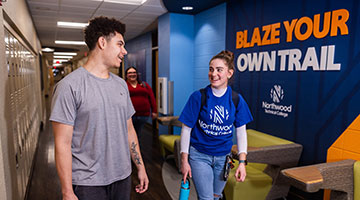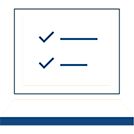Program Courses
10160143
|
UGRD
| 2
CRThis course develops professional skills and attitudes needed in a medical business environment. Skills developed include an ability to communicate effectively with patients and other medical office staff, manage time effectively, schedule patients, greet patients, use the telephone properly, process mail, apply ergonomics and office safety, and use medical computer software efficiently.
10513110
|
UGRD
| 1
CRThis course explores health career options and the fundamental principles and procedures performed in the clinical laboratory. You will utilize medical terminology and basic laboratory equipment. You will follow required safety and infection control procedures and perform simple laboratory tests. PREREQUISITE: Admission to the Phlebotomy Certificate or Medical Laboratory Technician program.
10513111
|
UGRD
| 2
CRThis course provides opportunities for learners to perform routine venipuncture, routine capillary puncture and special collection procedures. PREREQUISITE: Admission to the Phlebotomy Certificate or Medical Laboratory Technician program and COREQUISITE: 10513110 Basic Lab Skills.
10513112
|
UGRD
| 2
CRProvides students with experiences at a hospital or clinic in order to complete phlebotomy activities. Students complete venipunctures, perform administration of glucose testing, collect specimens, perform bleeding times, observe or perform arterial blood gas collections and adhere to safety regulations as established by the clinical site. COREQUISITES: 10513110 Basic Lab Skills, 10513111 Phlebotomy, 10501101 Medical Terminology or 10806177 General Anatomy and Physiology, 10160143 Medical Office Procedures and Customer Service, 10801196 Oral/Interpersonal Communication and criminal background check and PREREQUISITE: Admission to the Phlebotomy Certificate
CHOOSE 1 OF THE 2 FOLLOWING COURSES:
10501101
|
UGRD
| 3
CRFocuses on the component parts of medical terms: prefixes, suffixes and word roots. Students practice formation, analysis and reconstruction of terms. Emphasis on spelling, definition and pronunciation. Introduction to operative, diagnostic, therapeutic and symptomatic terminology of all body systems, as well as systemic and surgical terminology.
10806177
|
UGRD
| 4
CRExamines basic concepts of human anatomy and physiology as they relate to health sciences. Using a body systems approach, the course emphasizes the interrelationships between structure and function at the gross and microscopic levels of organization of the entire human body. It is intended to prepare health care professionals who need to apply basic concepts of whole-body anatomy and physiology to informed decision-making and professional communication with colleagues and patients. This course includes a one-credit lab component that supports the course objectives. (This course also provides the foundation, and is prerequisite to, Advanced Anatomy and Physiology.) NOTE: Successful completion of a chemistry course within the last five years is highly recommended.
General Education Courses
10801196
|
UGRD
| 3
CRFocuses on developing effective listening techniques and verbal and nonverbal communication skills through oral presentation, group activity, and other projects. The study of self, conflict, and cultural contexts will be explored, as well as their impact on communication. NOTE: This course is recognized for general education transfer as part of the University of Wisconsin (UW) System/Wisconsin Technical College System (WTCS) Universal Credit Transfer Agreement (UCTA).
Total Credits: 13-14


